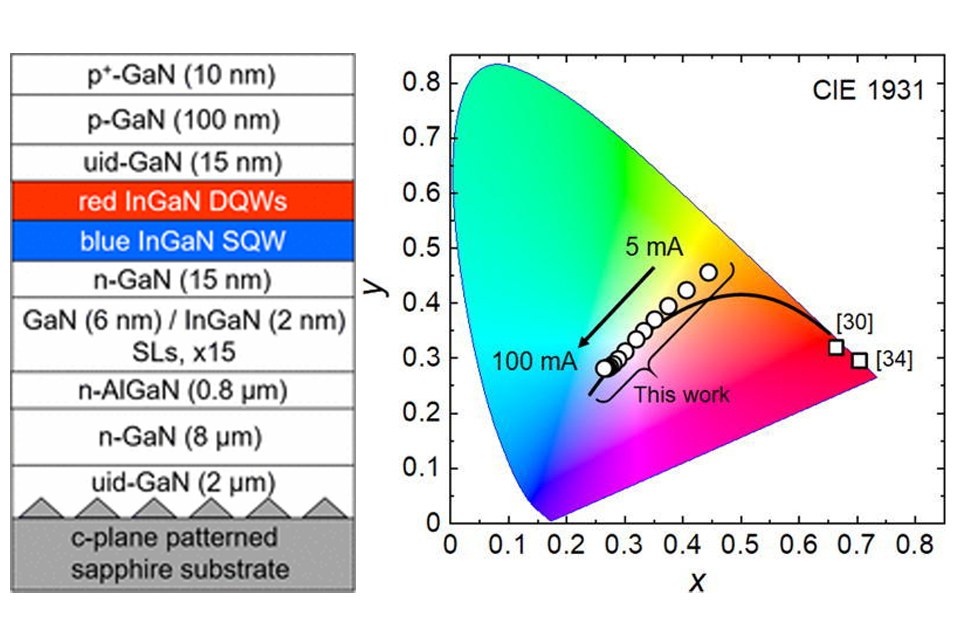KAUST Demonstrates High CRI Phosphor-Free InGaN-Based White LED
Daisuke Iida, Zhe Zhuang, Pavel Kirilenko, Martin Velazquez-Rizo, and Kazuhiro Ohkawaa from KAUST recently reported the growth of phosphor-free InGaN-based white light-emitting diodes (LEDs) by metalorganic vapor-phase epitaxy.
The active region consists of blue and red InGaN quantum wells (QWs). To improve the current injection and generate broadband emission, the V-pit structures in the LEDs were fabricated intentionally before growing the QWs. The monolithic white LEDs emit in the range of 410–770 nm and, by tuning the injection current, can cover correlated color temperature (CCT) values corresponding to warm white, natural white, and cool white. The color-rendering index (CRI) of the white LEDs reaches 88 at an injection current of 10 mA. At an injection current of 30 mA, the white LEDs exhibit the chromaticity coordinates of (0.320 and 0.334) in the Commission Internationale de l'Eclairage 1931 chromaticity diagram, a CRI of 78, and a CCT of 6110 K.
The researchers showed that by tuning the alloy composition of III-nitride materials, they can be made to emit over the full visible spectrum, which makes them excellent candidates for monolithically integrated white LEDs with polychromatic emission. By adding a red-emitting layer, they could improve CRI at lower CCTs. The system automatically provides a kind off integrated dim-to-warm feature.
This work was financially supported by the King Abdullah University of Science and Technology (KAUST) (No. BAS/1/1676-01-01).
The full article can be found at https://aip.scitation.org/doi/full/10.1063/5.0026017
About KAUST:
King Abdullah University of Science and Technology (KAUST) is a private research university located in Thuwal, Saudi Arabia. Founded in 2009, the university provides research and graduate training programs in English as the official language of instruction.
KAUST is the first mixed-gender university campus in Saudi Arabia. In 2013, the university was among the 500 fastest growing research and citation records in the world. In the 2016 Nature Index Rising Stars, the university ranked 19th in the world of the fastest rising universities for high quality research output. In 2019 KAUST is ranked 8th fastest rising young universities (aged 50 and under) for their research output since 2015, as measured by fractional count (FC). - https://www.kaust.edu.sa/en

